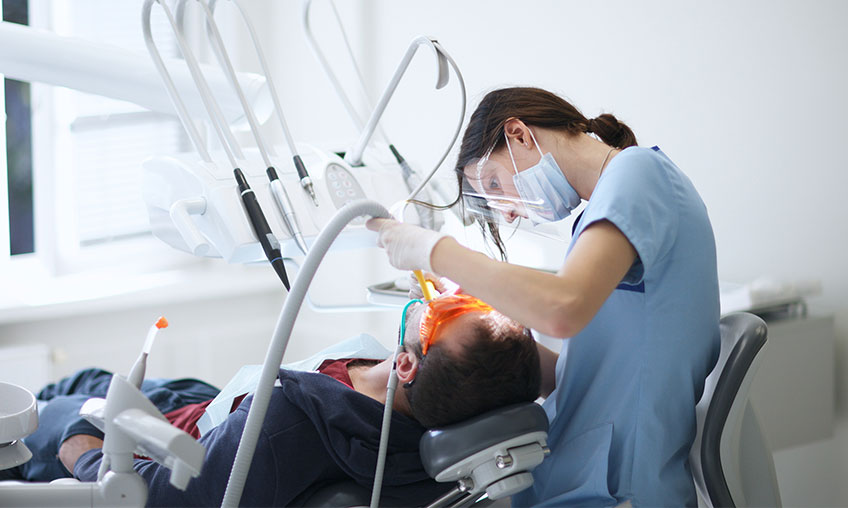Many people who have diabetes are unaware of it. What they also don’t know is that a routine dental exam can uncover the presence of this disease. Dentists play an important role in spotting undiagnosed diabetes and helping to manage the dental effects of the disease. Early detection is important because when left untreated, diabetes can lead to a number of serious health complications, including kidney disease, heart disease and stroke, nerve damage, blindness, and death.
How is diabetes related to oral health?
Diabetes is a risk factor for developing tooth decay, gum disease, and other oral health problems. That's because a diabetic's high blood sugar levels lead to greater levels of sugars and acids in the mouth. Diabetic people may experience more severe gum disease because diabetes lowers the body's ability to resist infection and slows healing. At the same time, gum disease can make diabetes more difficult to control. Gum disease is an infection that can make it harder to control blood sugar levels throughout the body. This puts diabetics at increased risk for diabetic complications.
How many Americans have diabetes?
Statistics from the American Diabetes Association indicate that in 2019, 37.3 million Americans had diabetes and that more than eight million people were not aware that they had the disease. In addition, 96 million people may have been pre-diabetic.
What are the symptoms of oral health disease in diabetics?
Early symptoms of gum and teeth infections in diabetic persons are decreased saliva, dry mouth, and a burning mouth or tongue. Diabetes may cause the gums to pull away from the teeth and eventually loosen and fall out.
What dental care is recommended for diabetics?
Good oral health care is especially important for people with diabetes and those who might be pre-diabetic. Diabetic people should brush their teeth every morning and evening with fluoride toothpaste. If possible, they should also brush after all meals and snacks. Flossing at least once a day is mandatory in order to remove plaque between the teeth, which is not removed by brushing. Using an anti-bacterial mouthwash is recommended. Diabetic patients should get professional dental cleanings every six months.

PREVENTISTRY PULSE
The newsletter designed for anyone who wants to improve oral health for themselves, their families, customers or communities.



